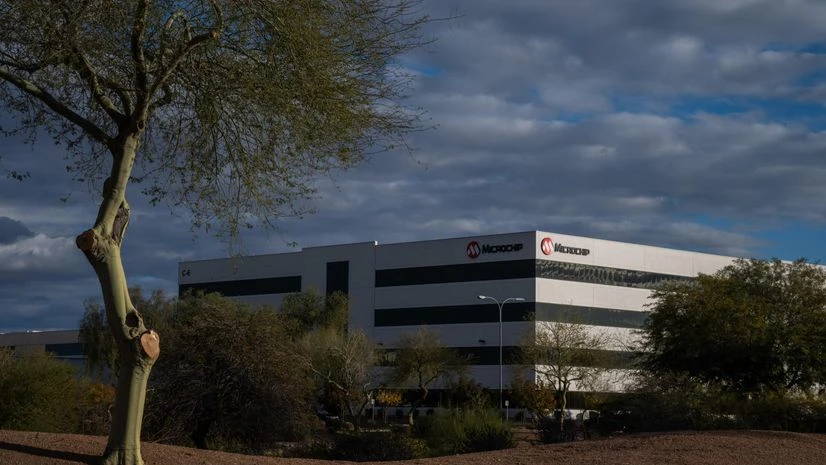By Mackenzie Hawkins
Microchip Technology Inc. is pausing its application for US semiconductor subsidies, making it the first known company to step back from a programme designed to revitalise American chipmaking.
The struggling chipmaker was in line for $162 million in grants from the Chips and Science Act to support plants in Oregon and Colorado. Since then, it’s furloughed workers twice at facilities in Oregon and announced plans to shut down a factory in Arizona, affecting around 500 employees.
“I have put the negotiations with the Chips office on hold for now,” Chief Executive Officer Steve Sanghi said Tuesday at a UBS conference, confirming earlier reporting by Bloomberg. “Probably, by the time I get my arms around it, we’re into the new administration.”
Microchip’s decision is a blow to Biden officials racing to finalise awards from the landmark bipartisan law before President-elect Donald Trump’s return to the White House. The Commerce Department, which is in charge of Chips Act implementation, has announced preliminary deals with more than 20 companies, and inked final agreements with six — including major players like Intel Corp. and Taiwan Semiconductor Manufacturing Co.
Those binding accords account for almost 50 per cent of direct funding from the programme, which set aside $39 billion in grants — plus loans and tax breaks — to boost the US semiconductor industry after decades of production shifting to Asia. Commerce Secretary Gina Raimondo has said she wants to finalise as much of that money as possible before leaving office.
“We are in communication with Microchip on their Chips process and continue to have productive conversations with them about their long-term plans,” a Commerce spokesperson said in a statement. It’s not clear whether the Commerce Department will reallocate the money set aside for Microchip.
)
)
More From This Section
Sanghi, a company veteran, returned as Microchip CEO last month to replace Ganesh Moorthy, who stepped down following three years in the role. Sanghi pledged to lead Chandler, Arizona-based Microchip through an industry downturn and return the company to profitability.
Microchip, which makes older-generation chips for products like cars and consumer devices, has been mired in a deep sales slump and expects revenue to drop 40 per cent in 2024. Its shares are down 27 per cent this year, making it one of the worst performers on the Philadelphia Stock Exchange Semiconductor Index.
The company’s decision to pause the Chips Act process and shutter its Arizona plant highlights the cyclical nature of the semiconductor industry. The sector’s booms and busts present a challenge for policymakers, who are negotiating investments and subsidies that stretch years into the future.
“The grant was applied to maybe almost a year ago, when everybody thought that the factory capacity was never enough, and the world was gonna build silicon fabs forever,” Sanghi said Tuesday. “Today, we have too much capacity.”
Those challenges were clear shortly after Microchip unveiled its preliminary Chips Act award in January. Several days after that announcement, the company said it would furlough employees for two weeks at its Oregon factory, citing inventory backlogs.
Asked at the time whether Microchip would still complete its government-supported projects, then-CEO Moorthy said in an interview that the company’s objective “is not ‘finish the expansion.’ The objective is ‘meet the market demand.’”
Chips Act funding also only covers a small slice of factory costs. In order for companies to move forward with projects, the sites have to make commercial sense — something Biden officials have long recognized.
The “government gives you 15 cents of every dollar you spend,” Sanghi said Tuesday. “Do I want to spend $100 million to get $15 million back from the government — if I don’t need it and I don’t want to spend the other 85 myself?”

)